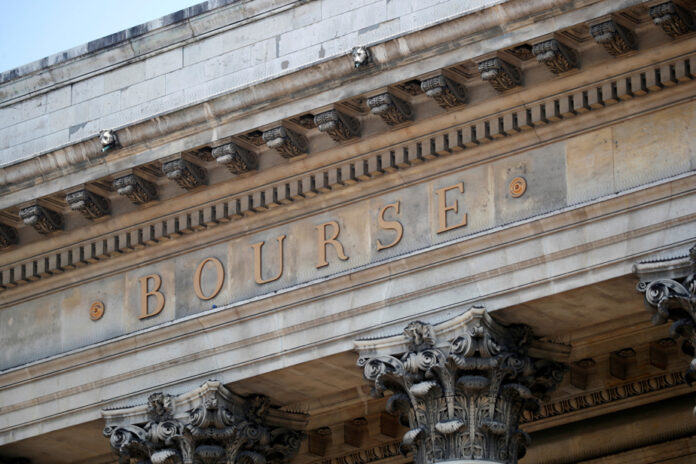(Paris) World stock markets are trending down on Tuesday, investors being disappointed by the macroeconomic indicators published in China and by the lowering of the main key rate of the Chinese central bank, deemed insufficient to support the economic activity of the country.
European stock markets closed sharply lower: Paris dropped 1.10%, Frankfurt 0.86% and London 1.57%.
“London and Frankfurt stock indices hit their lowest level in a month,” said CMC Markets analyst Michael Hewson.
Named guilty of the session: “the macroeconomics in China and all the concerns it generates”, comments Lucas Excoffier, head of continental brokerage at Oddo BHF.
In detail, in China, retail sales and industrial production came out below the expectations of analysts polled by Bloomberg.
And to support activity, the Chinese central bank cut its benchmark rate to 2.50% on Tuesday to encourage lending, but the measure is considered too “light” to “allay fears about the Chinese economy and therefore on the global economy,” continues Michael Hewson.
Regarding unemployment figures, the second largest economy in the world has decided to no longer publish details by age, after the record level reached among young people in recent months.
“China is almost in recession and investors fear that the situation of the world’s second largest economy will spill over into Europe and the United States”, commented Konstantin Oldenburger, analyst at CMC Markets.
To all this, “we can add the difficulties of Country Garden”, one of the largest real estate groups in China, and its “difficulties in honoring its debts”, also notes Lucas Excoffier. However, any collapse of Country Garden would have significant repercussions on the financial system and the Chinese economy.
In New York, the indexes were also moving into negative territory, despite the good news of a stronger than expected increase in US retail sales in July. Around 12:05 p.m. EST, the Dow Jones was down 0.84%, the NASDAQ 0.63% and the S
“July’s jump in retail sales suggests monetary policy tightening still has remarkably little impact on real economic activity,” said Capital Economics analyst Andrew Hunter.
However, all eleven sectors of the S
In Frankfurt, Deutsche Wohnen lost 2.54%, Vonovia 1.97% and Adler 6.21%. In Paris, Unibail-Rodamco-Westfield lost 1.98%, Icade 3.21% and Gecina 1.24%. In London, Land Securities dropped 1.41%.
Retail chain Marks and Spencer gained more than 8% in London after posting strong quarterly sales
Danish brewer Carlsberg gained 1.96% in Copenhagen after revising its 2023 forecast upwards.
The rouble, which had once benefited from extreme commodity prices, finds itself at its lowest against the dollar since March 2022, undermined by the drying up of hydrocarbon revenues and a flight of capital from Russia. It was dropping 2.92% at 97.84 rubles to the dollar around 12 p.m. EST.
Oil prices widened their losses on Tuesday after the publication of Chinese economic indicators.
The barrel of Brent from the North Sea, for delivery in October, fell 2.11% to 84.39 dollars and its American equivalent, the barrel of West Texas Intermediate (WTI), for delivery in September, lost 2.42 % at $80.51.
As China is the world’s largest importer of crude oil, the health of its economy is a major driver of oil demand.















